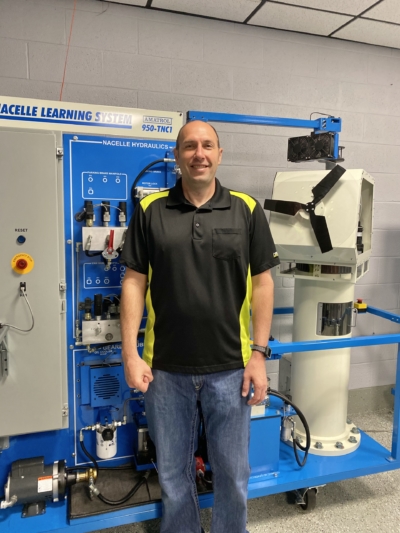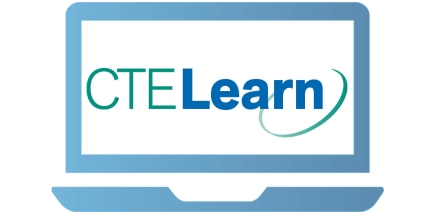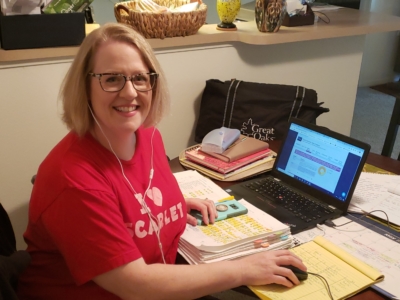 Meet Eryn Ruder, instructor of environmental science and anatomy and physiology at the Scarlet Oaks Campus of Great Oaks Career Campuses in Cincinnati, Ohio. Ruder’s spotlight interview is the first in a new feature on ACTE’s educational institution members (EIMs).
Meet Eryn Ruder, instructor of environmental science and anatomy and physiology at the Scarlet Oaks Campus of Great Oaks Career Campuses in Cincinnati, Ohio. Ruder’s spotlight interview is the first in a new feature on ACTE’s educational institution members (EIMs).
Great Oaks is a public career and technical education (CTE) school district serving 36 school districts in southwest Ohio. Each year, thousands of area students prepare for college and career at a Great Oaks Career Campus.
Professional certification is available in a wide range of career fields. These include health care, high-tech manufacturing, biotechnology, construction trades, culinary arts, agriculture, cosmetology and more. Great Oaks offers more than 30 different programs on four campuses as well as satellite programs in 28 of the district’s 36 affiliated school districts. Each year, more than 22,000 area students take Great Oaks classes. Career training and personal enrichment programs are also available for adults.
Great Oaks has a tradition of providing career programs to meet community needs. Partnerships with local business, education and community agencies help shape the programs offered.
Eryn Ruder, Great Oaks Career Campuses, EIM
Tell me a little about your upbringing. What led you to your field?
I grew up with my younger sister and brother in Butler County, Ohio, in an area called Overpeck. We had a five-way intersection and a post office. Overpeck is known for large aggregate deposits/gravel pits. It was also the birthplace of seismologist Charles Richter. My parents just celebrated 50 years of marriage; they live in the same house where I grew up.
My love of science comes from family time spent outdoors. I love camping, picnicking, hiking, fishing, “creek tromping,” and hunting for fossils, salamanders, turtles and snakes.
I come from a long line of educators. My great aunt began her career as a teacher in a one-room schoolhouse in Rockcastle County, Kentucky. She retired as an elementary teacher from Ohio’s Hamilton City schools. My mother as a job coach, teaching and training clients with developmental disabilities throughout Butler County. While working toward a zoology degree, I volunteered to tutor elementary and middle school science students. This is when I fell in love with teaching.
You mentioned you have a degree in zoology. Where did you attend school?
I graduated from New Miami Local Schools. I earned my bachelor’s degree in zoology from Miami University in Oxford, Ohio, and a master of education from Mount Saint Joseph University.
What barriers did you face in pursuit of postsecondary education? How did you overcome those obstacles?
Neither of my parents have college degrees but they always made it clear that my siblings and I could go to college and earn degrees. We all three completed advanced degrees. My brother and I both teach with master’s degrees in education and my sister earned a doctor of nursing practice and teaches at Case Western Reserve University in Cleveland.
I became a nontraditional college student when I got married at 20. I took time off my senior year when I gave birth to my daughter. She was 18 months old when I received my bachelor’s degree in 1996.
How did you come to the position you’re in now at Great Oaks?
I took an alternative pathway to the classroom. I was never an education major. In the final year of coursework for my zoology degree, I realized that I wanted to pursue education as a career. I obtained an Ohio substitute teaching license and worked as a substitute teacher throughout Butler County, then as a building sub at New Miami. I went in every day. If all the staff members were present, I would tutor in math and science classrooms.
I started working on my graduate degree at Mount Saint Joseph in 2006. I completed the testing required to teach life sciences and upgraded my licensure. Northwest Local School District hired me to teach biology at Northwest High School and I entered my own classroom in 2007, where I taught until June 2015. I began teaching science at Scarlet Oaks in August 2015.
How do you like working on campus?
I absolutely love teaching at Scarlet Oaks. I appreciate the diverse student population and the amazing experiences our campus has to offer. Great Oaks Career Campuses leverage technology to support students — great during a normal school year and even more so while remote learning. The district offered encouragement as I transitioned to deliver course content using the Grid Method of instruction for mastery learning. A team of Grid Method teachers, across all campuses, promotes collaboration. The transition to remote learning was smooth for those of us using it. Great Oaks finished the year by hosting a virtual workshop with Chad Ostrowski, creator of the Grid Method, to provide further support and to train more instructors.
Is there anything else about your life that you’d like to share?
We lost our youngest son, Alec, to suicide on Oct. 1, 2018, and it changed my life in so many unpredictable ways. Someone recommended a book by Iris Bolton (1983), My Son… My Son: A Guide to Healing After a Suicide in the Family. In it was this quote,
“There is a gift for you in your son’s death. You may not believe it at this bitter moment, but it is authentic, and it can be yours if you are willing to search for it. To other eyes, it may remain hidden. The gift is real and precious, and you can find it if you choose.”
I have always been very open and accepting of my students in regard to mental health but even more so in the wake of losing Alec. I completely changed the way I teach.
During this rapid change to remote learning, I was able to help other teachers use the tools that made the transition easy for my students and me. Tools I never would have had without Alec.
My daughter, Mackenzie, is a Columbus College of Art and Design graduate and works as an educator at the Innovation Pointe Makerspace, within the MidPointe Library System. She is also an illustrator and graphic novelist.
My surviving son, Conner, is a Great Oaks graduate. He completed the computer science technician and networking program at Live Oaks and has recently been hired by the West Clermont School District (a Great Oaks feeder school) as a computer technician. We are very excited to add another family member working in education!
Do you have any advice about the higher learning experience that you would offer to students who intend to pursue postsecondary education in CTE?
My educational journey did not lead to the career I thought it would when I started. But while the path was winding and sometimes very difficult, it was worth it.
It is never too late to shift gears to pursue a career that you find fulfilling.
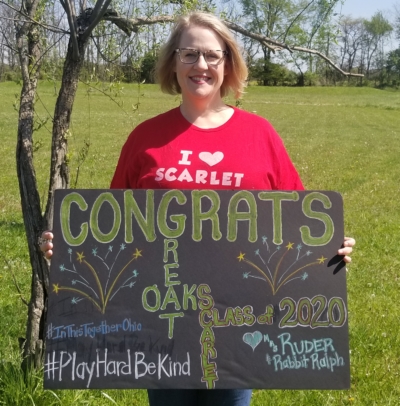 educational institution membership with ACTE.
educational institution membership with ACTE.

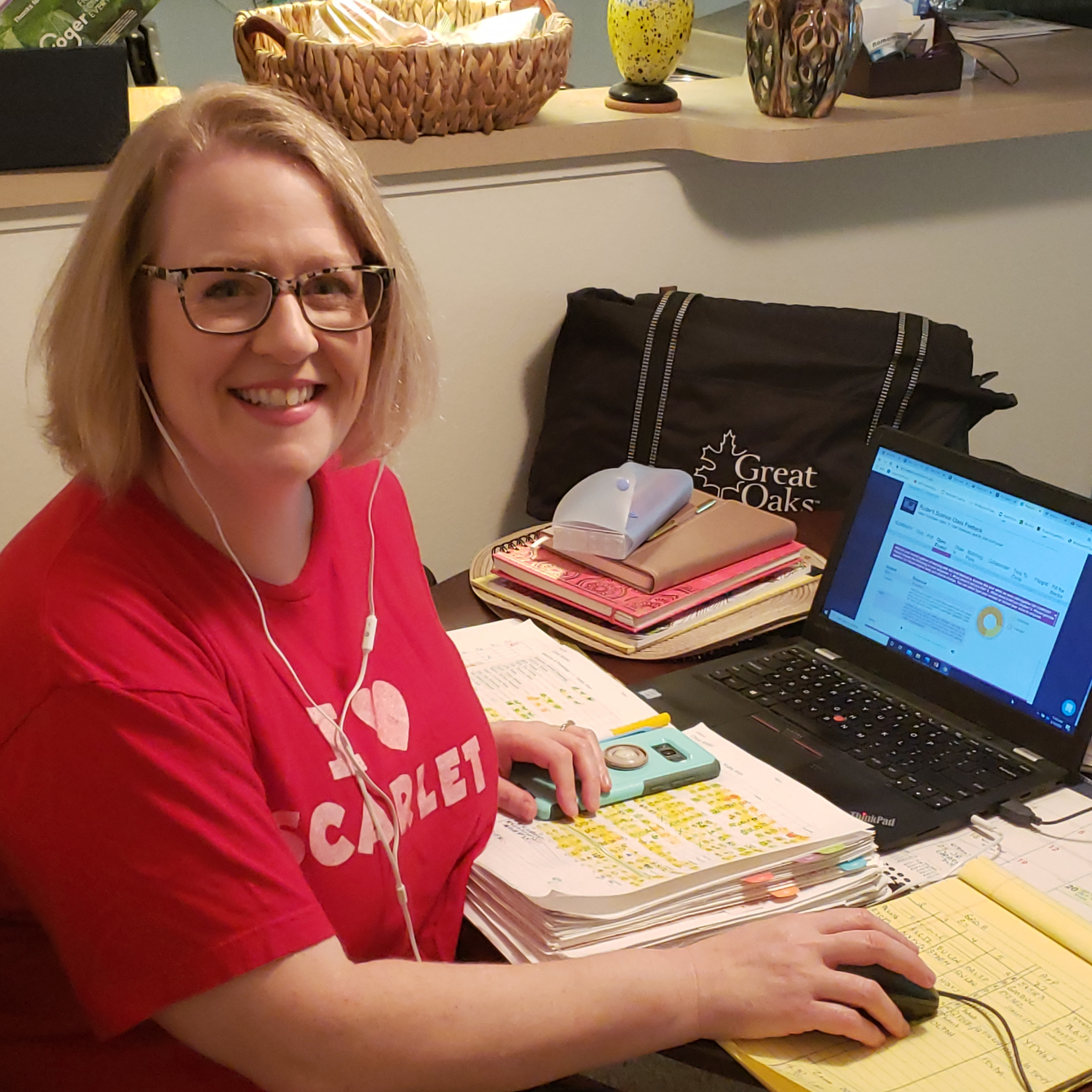

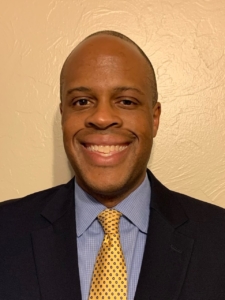

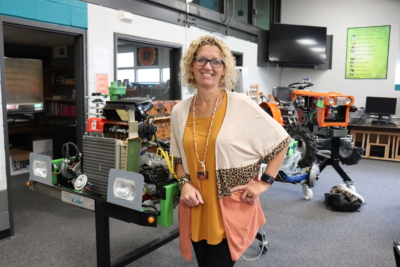
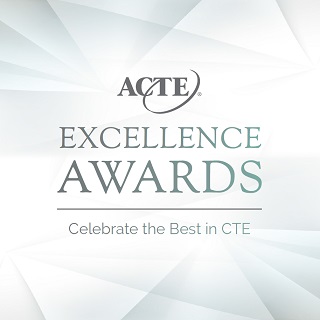
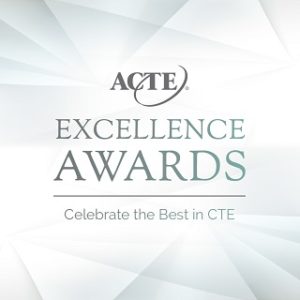 The ACTE Excellence Awards recognize:
The ACTE Excellence Awards recognize: